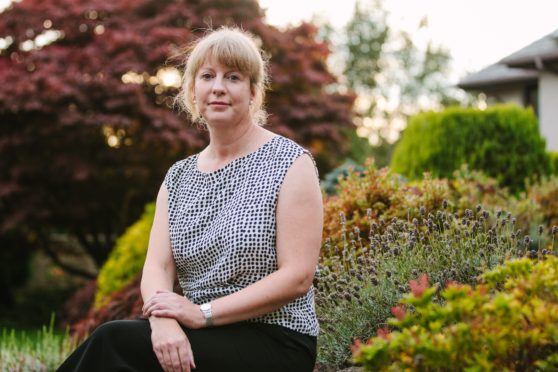
The care of women suffering miscarriage must be urgently improved, according to a campaign launched today.
Women, including former health secretary Shona Robison MSP, have spoken of their loss and, backed by experts, called for the best treatment and training across the NHS.
Up to one in four women have pregnancies that end in loss yet miscarriage is too often suffered in silence.
The campaign, Changing Miscarriage Care, fronted by Shona Robison and Nadia El-Nakla, and supported by the charity, Tommy’s, aims to remove the health postcode lottery that applies to miscarriage and encourage women to talk about their experience.
They want to see small but important changes that would see education improve around the reality of miscarriage and consistent care and treatment in the NHS, including the option of progesterone when a miscarriage is threatened.
In an interview about her experience in 2007, which you can read in full in today’s Sunday Post, Ms Robison said: “It was all a bit of a blur at the time.
“I think it was afterwards that I got more upset because at the hospital you are trying to take in the news that you are no longer pregnant. You are being asked about what you want to do, whether there should be any medical intervention.
“You are having loads of new information thrown at you. Everything is so busy, and you’re sort of on automatic pilot trying to take it all in but not really feeling quite there. Not really processing it at all.
“The staff at the hospital were really nice but what do you say to someone who has just been told they are no longer pregnant? I was a bit hazy about the information I was given but I do remember them saying that, because I was 41, if I wanted to try again I shouldn’t leave it too long and in that instance they would help me with an early pregnancy test to make sure everything was alright. I know that was well-intentioned, but really, trying again was the last thing on my mind.”
Julie Ford, 28, also shares a powerful account of losing her baby when six weeks pregnant.
She said: “I didn’t tell anyone this had happened, because I was in denial. I was in denial that my pregnancy had ended, and I was in denial my baby was gone. I needed to have confirmation from a scan.
“However, my experience at the hospital was far from positive. There was an attitude that I was “only six weeks pregnant” and I should have known that there was a chance my pregnancy would end in miscarriage. Like this is completely normal, and that women and parents must learn to deal with that fact.
“Once I was home, I started to feel let down. Let down that my concerns, upset and distress hadn’t been taken seriously from the moment I called the hospital. Let down by our society, where collectively we suffer from a particularly cruel cognitive dissonance.
“On the one hand, we maintain a stigma around miscarriage – it remains firmly a taboo subject, met with grimaces, quick changes of subject and palpable awkwardness. On the other, we are encouraged to think of miscarriage as just one of those things, a view that allows – in fact, encourages – us to fail to see, understand or empathise with the psychological impact that it can have on parents.”
Julie’s story: Miscarriage is just one of those things? Not for me or all the women like me

Enjoy the convenience of having The Sunday Post delivered as a digital ePaper straight to your smartphone, tablet or computer.
Subscribe for only £5.49 a month and enjoy all the benefits of the printed paper as a digital replica.
Subscribe